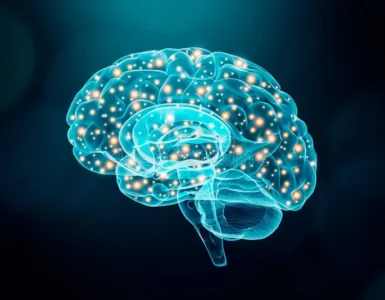Most of us have heard of the term “stem cells”. However, not many of us understand what they are beyond the fact that they can cure certain diseases. With that, let us find out what stem cells are and what features allow them to do certain functions that normal cells cannot. We will also discuss the different types of stem cells, their uses, and whether stem cells are ethical.
What are Stem Cells?
Normal cells have specific functions depending on where they can be found. For example, your red blood cells are adapted to carry as much oxygen via haemoglobin. Normal cells will also age and undergo cell apoptosis when their time is up. However, stem cells are unspecialised and are capable of self-renewal. Under certain conditions, they can differentiate to form specialised cells in different parts of your body.
Features
Differentiation
As mentioned above, stem cells are unspecialised. This means that they can differentiate to form specialised cells, and this is due to the lack of tissue-specific structures. Tissue-specific structures are specific proteins that allow stem cells to have specialised functions.
Differentiation is when stem cells differentiate to become specialised cells. This allows them to perform specialised functions, depending on which tissue-specific structures it obtains. Specialised cells can then repair or replace other specialised cells that are damaged or dead. However, it is difficult for stem cells to produce new cells after being specialised.
Long-term self-renewal
As we have mentioned earlier, stem cells can undergo long-term self-renewal. This means that they can divide to produce identical copies of themselves via mitosis for the organism’s lifetime. This is similar to how cancer cells proliferate.
Stem cells can divide by symmetric or asymmetric division. In symmetric division, both daughter cells can carry out self-renewal, which ensures the continued replenishing of stem cells in the organ. However, in asymmetric division, one daughter cell will be a stem cell, whereas the other will be a specialised cell.
Potency of Stem Cells
There are four types of potency in stem cells – totipotency, pluripotency, multipotency, and unipotency. This refers to the potential of stem cells to differentiate into different types of cells.
Totipotency – cells can differentiate into any cell types, forming the whole organism
Pluripotency – cells can differentiate into most cell types, forming any organ
Multipotency – cells can give rise to a limited number of cell types, based on the location of cells or tissue
Unipotency – cells can only give rise to one type of cells

Types of Stem Cells
Adult stem cells
Adult stem cells are multipotent undifferentiated cells. They are found in differentiated tissues and can differentiate to form all the specialised cell types within that tissue. Adult stem cells aim to replace dying cells and heal damaged tissues. Examples include bone marrow stromal cells and neural, epithelial, and skin stem cells.
Now, a little more about hematopoietic stem cells. These multipotent cells found in the blood can differentiate into blood cells and immune cells. Hematopoietic stem cells can treat conditions such as leukaemia and sickle cell anaemia, and they can be found in your bone marrow and umbilical cord blood.
Bone marrow
The bone marrow is responsible for producing all types of blood cells, and these arise from the aforementioned hematopoietic stem cells. Hematopoietic stem cells divide asymmetrically to produce one daughter stem cell and either a myeloid or lymphoid stem cell.
Embryonic stem cells
Embryonic stem cells are pluripotent cells from the inner cell mass of the blastocyst found in the embryo. These cells are responsible for developing the embryo into the baby, which means we were once embryonic stem cells. However, they cannot form extra-embryonic membranes and the umbilical cord.
Umbilical cord blood
Umbilical cord blood is blood from the placenta and umbilical cord, and it is collected from the umbilical cord after a baby is born. Like bone marrow, umbilical cord blood is rich in hematopoietic stem cells. Umbilical cord blood is less prone to rejection as stem cells have yet to develop features that the recipient’s immune system will attack.
Zygotic stem cells
Zygotic stem cells are totipotent cells from the morula taken during the development of a zygote.
Uses of Stem Cells
Drug testing
We cannot use humans to test the effectiveness of newly-developed drugs. As such, we can use stem cells in place of humans and animals (after all, say no to animal cruelty). This is done by differentiating stem cells into the particular type of cell for which the drug is meant. As such, a more accurate response will be given by the stem cells in determining whether the drug is effective or not.
Stem cells can also be used to test the toxicity of substances before they are used, for example, pesticides. With that, testing new drugs will be safer and cheaper. Moreover, it is a more ethically acceptable alternative for those opposed to animal testing.
Gene therapy testing
For patients with genetic illnesses, stem cells can help in the process of developing new gene therapy methods.
Replacing damaged tissues
When stem cells are differentiated into specialised cells before being transplanted, they can help to replace damaged tissues. They can treat many different conditions due to this function. These treatments aim to regenerate specialised cells in the tissue.
Studying human development
Stem cells can be used to study the history of humankind. With that, we can find out more about preventing diseases such as cancer and genetic illnesses.
Toxicity testing
Toxicity testing is done to see how much a substance can damage a living or non-living item. Stem cells provide an unlimited supply of human cells, which scientists can use for toxicity testing.
Ethical Implications
While stem cell research allows for greater research in learning more about humans and finding new methods to treat diseases, it also causes several ethical implications.

To obtain embryonic stem cells, the embryo must be destroyed. This is closely linked to the controversy over abortion and when human life begins. As such, using them for research may be considered murder to some. Another controversy is whether permissions from donors were given for the embryos to be used for research. For in-vitro fertilisation, failed developments are usually discarded. However, they may have been used for research without the parents’ permission.
Induced Pluripotent Stem Cells (iPSCs)
Directly generated from adult cells, iPSCs are genetically-reprogrammed cells that can function as stem cells. This prevents the destruction of embryos in obtaining embryonic stem cells. They can also minimise the risk of immune rejection as these cells are personalised. Using iPSCs also poses fewer risks as compared to donors of oocytes.
Conclusion
So, is the use of stem cells for research ethical? Well, I will leave that for you to decide. What is ethical and not will depend on our personal beliefs, which makes this issue controversial. Whatever it may be, I hope that you now have a better understanding of what stem cells are and what they do.





Add comment